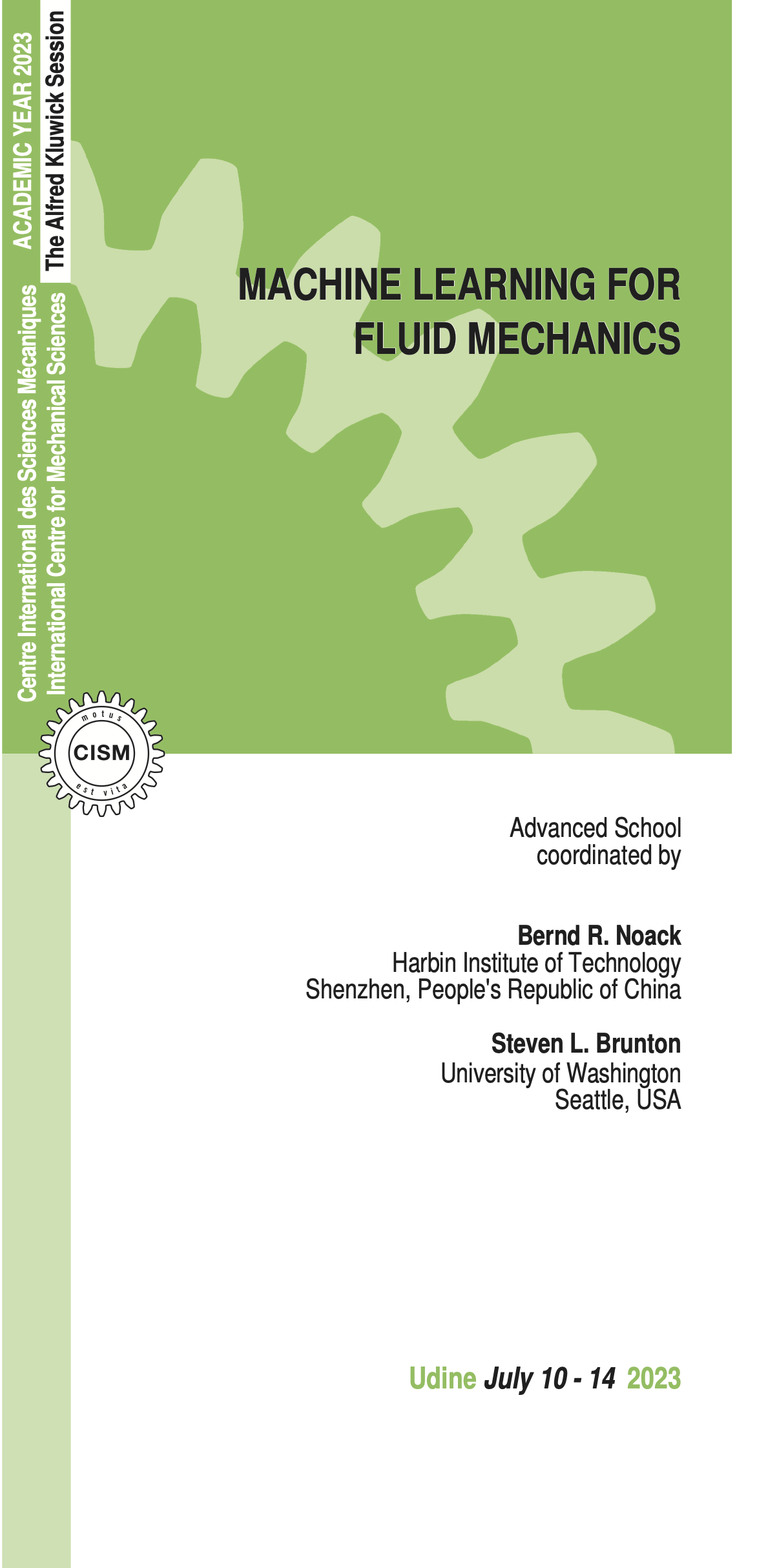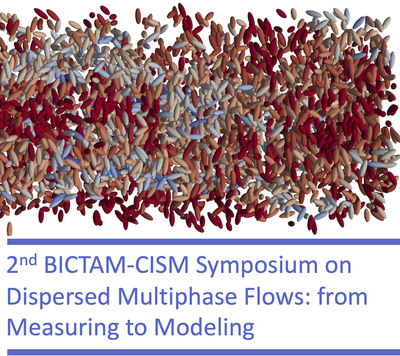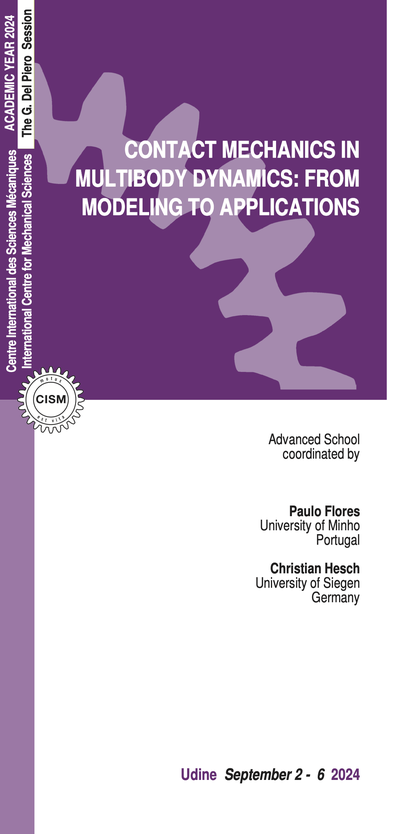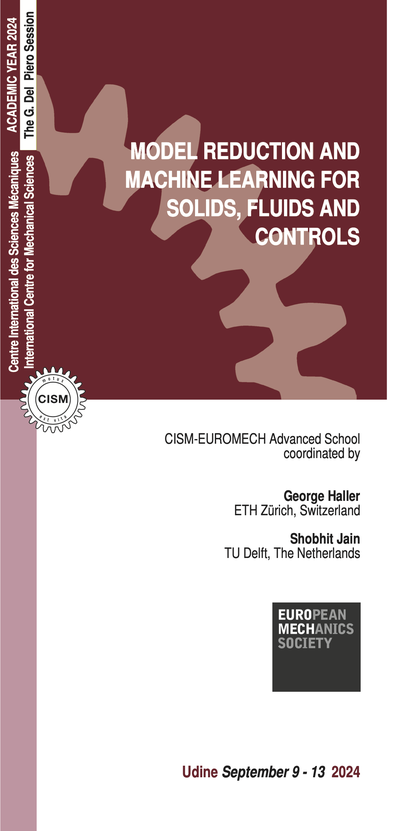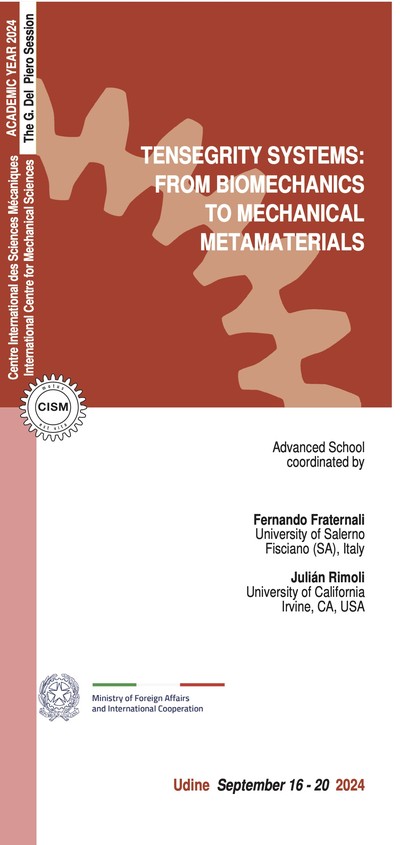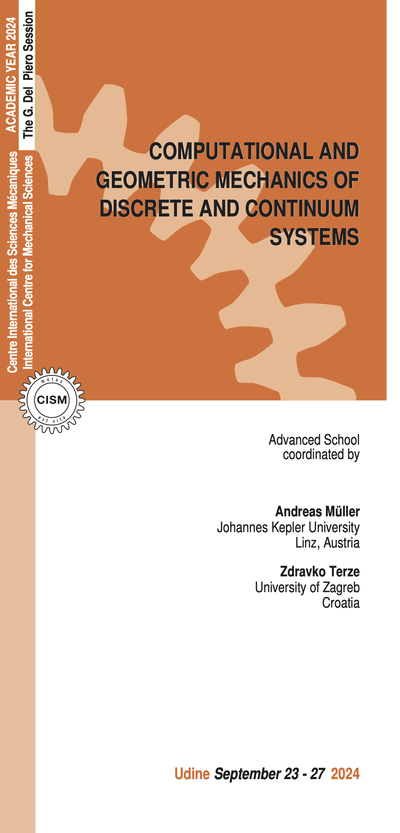Machine learning / artificial intelligence accelerates the progress in all research fields, fuels the fourth industrial revolution and transforms our daily lifes. Increasing computer power, rapidly improving methods of machine learning and the availability of ever increasing amounts of high quality data facilitate a paradigm shift from first-principle based deductions to data-driven discoveries and modeling. Fluid mechanics, historically a field of big data, is no exception. In addition, machine learning provides increasingly powerful methods for the challenging optimization problems faced in aerodynamic engineering. This course will outline established state-of-the-art methods of machine learning and demonstrate their application in high-challenge applications of fluid mechanics, like analyses, discovery of equations, dynamic modeling, control, turbulence closures and shape optimization. This course is aimed at Ph.D. students and Master students in all fields of fluid mechanics. Researchers interested in the potential of machine learning are also welcome to attend this course.
The literature of fluid mechanics contains myriad of machine learning applications. The curriculum aims to pair methods with problems, i.e. present machine learning methods in a natural application environment. Thus the power of each method can immediately be assessed. The applications belong to 6 fields.
1. Analysis of coherent structures. Low-dimensional flow representations have been at the core of theoretical fluid dynamics, starting with vortex models in the 1870s. Machine learning allows to distill low-dimensional Galerkin expansions and nonlinear manifolds from data. A low-dimensional state space is a critical enabler for understanding, full-state estimation, prediction and optimization.
2. Nonlinear dynamics. Hitherto, new equations have typically been derived from first principles. Machine learning enables to distill predictive human interpretable ordinary/partial differential equations from data.
3. Sparse data/rare events. Most engineering problems, e.g. for many involved parameters or for rare events, will never have enough data for a purely empirical characterization. A probabilistic framework is presented to compensate for lack of data.
4. Turbulence closures. Practically every engineering simulation is based on eddy viscosity, wall models and related closure simplifications. Machine learning harnesses rich data sets to develop more accurate closures.
5. Turbulence control. Modern computer and hardware developments provide an eldorado of unprecedented control opportunities with dramatic aerodynamic performance improvements, e.g. powerful actuators and sensors and smart skins. Machine learning facilitates an automated learning of nonlinear control laws.
6. Shape optimization. Over hundred years, the shape of every high-speed transport vehicle and flow machine has been systematically improved for aerodynamic performance based on first principles and experience. Machine learning offers new automated approaches for these high-dimensional optimization problems.
This course aims to synergize machine learning methods with first principle knowledge of fluid mechanics.
Brunton, S. L., Noack, B. R. and Koumoutsakos, P. 2020. Machine learning for fluid mechanics, Annu. Rev. Fluid Mech. 52, 477-508. Mendez, M. A., Ianiro, A., Noack, B. R., Brunton, S. L. 2022. Data-Driven Fluid Mechanics: Combining First Principles and Machine Learning, Cambridge University Press.
Brunton, S. L., Kutz, N. 2022. Data-Driven Science and Engineering: Machine Learning, Dynamical Systems, and Control, Cambridge University Press.
Hastie, T., Tibshirani, R., Friedman, J. 2009. The Elements Of Statistical Learning: Data Mining, Inference, And Prediction, Springer (2nd edition).
Nocedal J., Wright S. J. 2006 Theory of Constrained Optimization. Springer.
Wahde, M. 2008 Biologically Inspired Optimization Methods: An Introduction, WIT Press.
Vinuesa, R., Brunton S. L. 2022. Enhancing computational fluid dynamics with machine learning. Nat. Comp. Sci. 2 (6), 358-366.
Pope, S. B. 2000 Turbulent flows, Cambridge University Press.
Brunton, S. L. and Noack, B. R. 2015 Closed-loop turbulence control: Progress and challenges, Appl. Mech. Rev. 67 (5), 050801:01-48.
Sapsis, T. 2022. MIT Lecture Notes on Stochastic Systems - chapters 2 and 3 https://www.dropbox.com/s/8nasr9e1ufoeg7.
Sapsis, T. 2021 Statistics of extreme events in fluid flows and waves, Annu. Rev. Fluid Mech. 53 85-111.
Farazmand, M., Sapsis, T. 2019. Extreme events: mechanisms and prediction, ASME Appl.Mech. Rev. 71(5): 05080.
Skinner S. N., Zare-Behtash H. 2018. State-of-the-art in aerodynamic shape optimisation methods. Appl. Soft Comp. 62:933-962.
Martins J. 2022. Aerodynamic design optimization: Challenges and perspectives. Comp. Fluids 239, 105391.
6 lectures on: Sparse nonlinear modeling. Physics-informed machine learning. Enforcing symmetries and physics in neural networks. Discovering interpretable models from data. Learning effective coordinate systems. Control.
2 lectures on: Learning data-driven dynamical systems with DMD and structured time-delay models.
6 lectures on: Low-dimensional features and Galerkin expansions: proximity map, POD, DMD. Manifold modeling: LLE, ISOMap-KNN. Regression problem of the first kind (function fitting). Methods of function fitting: linear, quadratic, KNN, neural networks, Kriging. Sensor-based flow estimation. State-of-the-art wall-turbulence estimation.
6 lectures on: Linear control. Nonlinear model-based control, POD Galerkin model. Model-free control, linear genetic programming. Cluster-based control. Reinforcement learning. Research fronts on engineering turbulence control.
4 lectures on: Extremes and upcrossings for statistically stationary stochastic processes. Examples and applications related to non-stationary stochastic systems. Physics-based precursors for extreme events. Active learning methods for quantifying extreme events; Bayesian optimization for extremes and applications to decision making. Value of data for reduced order modeling of extremes.
6 lectures on: Turbulent flows: fundamentals and simulation methods. Deep-learning methods applied to turbulence. Prediction methods for non-intrusive sensing. Data-driven approaches for turbulence modeling. Reduced-order modeling and possibilities of autoencoders. Data-driven methods for flow control.
5 lectures on: Aerodynamic shape optimization (ASO). Airfoil and wing parameterization methods. Gradient-based and gradient-free optimization algorithms. High-dimensional ASO; Machine learning and ASO.
ADMISSION AND ACCOMMODATION
The course is offered in a hybrid format giving the possibility to attend the course also by remote (on Microsoft Teams platform). On-site places are limited and assigned on first come first served basis.
The registration fees are:
- On-site participation, 600.00 Euro + VAT*
This fee includes a complimentary bag, five fixed menu buffet lunches, hot beverages, downloadable lecture notes.
Deadline for on-site application is June 10, 2023.
- Online participation, 250.00 Euro + VAT*
This fee includes downloadable lecture notes.
Deadline for online application is June 28, 2023.
Application forms should be sent on-line through the following web site: http://www.cism.it
A message of confirmation will be sent to accepted participants.
Upon request a limited number of on-site participants can be accommodated at CISM Guest House at the price of 35 Euro per person/night (mail to: foresteria@cism.it).
* where applicable (bank charges are not included) Italian VAT is 22%.
CANCELLATION POLICY
Applicants may cancel their registration and receive a full refund by notifying CISM Secretariat in writing (by email) no later than:
- June 10, 2023 for on-site participants (no refund after the deadline);
- June 28, 2023 for online participants (no refund after the deadline).
Cancellation requests received before these deadlines will be charged a 50.00 Euro handling fee. Incorrect payments are subject to Euro 50,00 handling fee.
GRANTS
A limited number of participants from universities and research centres who are not supported by their own institutions can request the waiver of the registration fee and/or free lodging.
Requests should be sent to CISM Secretariat by May 10, 2023 along with the applicant's curriculum and a letter of recommendation by the head of the department or a supervisor confirming that the institute cannot provide funding. Preference will be given to applicants from countries that sponsor CISM.
